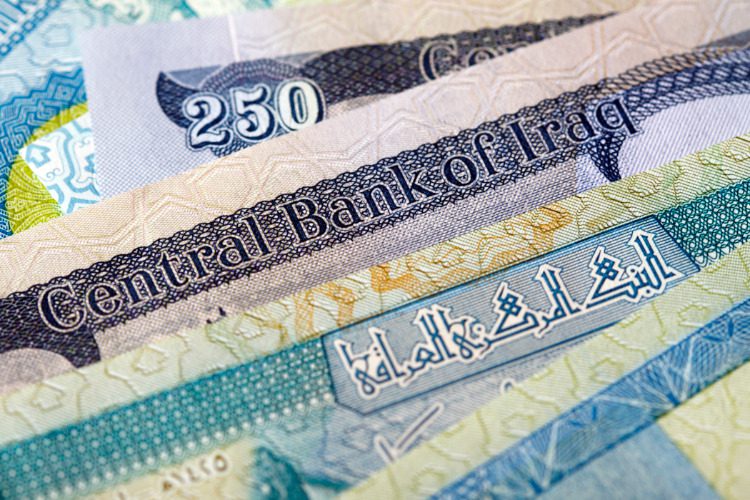The Future of the Iraqi Dinar: How Digital Banking Innovations Are Changing the Game

In recent years, the financial landscape of Iraq has been undergoing a significant transformation, with digital banking and fintech innovations at the forefront. These advancements are not only modernizing the country’s banking sector but also playing a crucial role in shaping the future of the Iraqi Dinar (IQD). As Iraq pushes towards a digital economy, the impact on the value and stability of the Dinar is becoming a subject of great interest among economists, investors, and policymakers alike.
The Rise of Digital Banking in Iraq
Traditionally, Iraq’s banking system has been heavily reliant on cash transactions, with limited access to modern financial services. However, with the increasing adoption of digital banking solutions, the landscape is changing rapidly. The Central Bank of Iraq (CBI) has been instrumental in promoting financial inclusion and digitization by encouraging banks to adopt innovative technologies, including mobile banking, electronic payments, and blockchain solutions.
Several banks in Iraq, such as Rafidain Bank, Al-Rasheed Bank, and the Trade Bank of Iraq (TBI), have introduced online banking services, mobile applications, and digital wallets to facilitate seamless transactions. These initiatives are aimed at reducing reliance on cash, improving financial security, and promoting economic growth.
The Impact of Digital Banking on the Iraqi Dinar
1. Increased Financial Inclusion and Economic Stability
One of the most significant impacts of digital banking on the Iraqi Dinar is increased financial inclusion. A large portion of Iraq’s population has historically remained unbanked due to limited access to banking infrastructure. However, digital banking solutions, particularly mobile wallets and online banking, have enabled more people to participate in the formal financial system.
As more individuals and businesses utilize digital banking, the demand for the Iraqi Dinar in formal transactions increases, leading to a more stable and controlled circulation of the currency. This stability is essential in preventing inflationary pressures and currency depreciation.
2. Reduction of Black Market Currency Trade
For years, Iraq’s parallel currency market has played a significant role in the fluctuation of the Dinar’s value. The lack of transparency in financial transactions has fueled the black market trade of foreign currencies, leading to instability in the exchange rate.
With digital banking and electronic payment solutions, the government can exercise greater control over financial transactions, reducing the need for individuals and businesses to rely on black market exchanges. This, in turn, contributes to a stronger and more stable Iraqi Dinar.
3. Increased Foreign Investment and Economic Growth
A modernized financial sector attracts foreign investment. International businesses and investors are more likely to engage with an economy that offers a secure and efficient banking system. With the adoption of digital banking technologies, Iraq presents itself as a more viable investment destination.
Foreign direct investment (FDI) plays a crucial role in strengthening the Iraqi economy, which directly impacts the value of the Dinar. As Iraq continues to improve its digital financial infrastructure, confidence in the local currency will likely increase, leading to a potential appreciation of the Dinar against major foreign currencies.
4. Improved Monetary Policy Implementation
The Central Bank of Iraq relies on monetary policy tools to regulate inflation and maintain currency stability. However, an economy dominated by cash transactions poses challenges in implementing effective monetary policies. Digital banking provides the CBI with better data on money supply, spending patterns, and financial transactions, allowing for more precise policy decisions.
With enhanced digital transaction monitoring, the CBI can more effectively control inflation, adjust interest rates, and manage the overall economic environment to support the Iraqi Dinar’s value.
Challenges and Roadblocks to Digital Banking Growth in Iraq
While digital banking holds great promise for Iraq’s economic future, several challenges need to be addressed:
-
- Infrastructure Limitations: Iraq still faces issues related to unreliable electricity and internet access, which can hinder the widespread adoption of digital banking services.
- Cybersecurity Concerns: As digital banking expands, the risk of cyber threats and fraud also increases. Strengthening cybersecurity measures and educating users about digital security are critical.
- Regulatory Barriers: The legal and regulatory framework governing digital banking needs further refinement to encourage innovation while ensuring financial security and consumer protection.
- Public Awareness and Trust: Many Iraqis remain skeptical about online banking due to a lack of awareness and trust in financial institutions. Public education campaigns can help build confidence in digital financial services.
The Future of the Iraqi Dinar in a Digital Economy
As Iraq continues its digital banking transformation, the future of the Iraqi Dinar looks promising. If implemented effectively, digital banking innovations can enhance financial stability, attract foreign investments, and increase public trust in the financial system.
The Central Bank of Iraq’s ongoing initiatives, coupled with advancements in fintech and blockchain technology, indicate a move towards a more transparent and efficient financial ecosystem. The Iraqi Dinar could see greater stability and potential appreciation as the economy integrates more fully into the global financial system.
Conclusion
The adoption of digital banking in Iraq is a game-changer, not just for the country’s financial sector but also for the future of the Iraqi Dinar. By reducing reliance on cash, increasing financial inclusion, and attracting foreign investment, digital banking has the potential to strengthen the currency and support long-term economic growth.
While challenges remain, the trajectory of Iraq’s digital banking revolution is set to reshape the financial landscape, paving the way for a more stable and prosperous economy. Investors, policymakers, and financial experts should closely monitor these developments, as the evolution of digital banking in Iraq will undoubtedly play a pivotal role in determining the Dinar’s future in the global economy. Contact us today to learn more!
Recent Post
- The Benefits of Regulating the Iraqi Dinar (IQD): A Path to Economic Stability and Growth
- How to Exchange Iraqi Dinar: Best Practices for Travelers and Investors
- Iraq Currency Exchange: Best Practices for Safe and Legal Transactions
- The Future of the Iraqi Dinar: How Digital Banking Innovations Are Changing the Game



